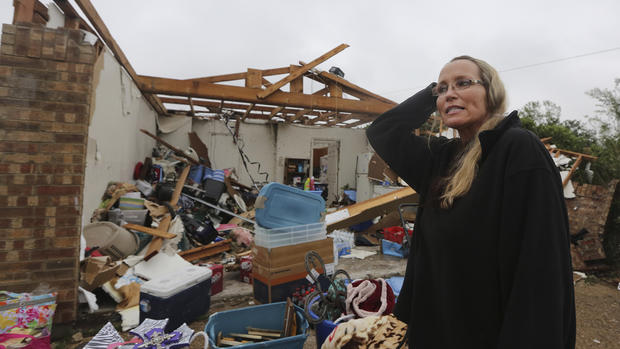Predicting weather: National Weather Service gets a boost
(CBS News) Warnings about Wednesday's Texas tornadoesgave people just 26 minutes to prepare for impact. That's actually more than double the average warning time. When people have more notice to get into a safe place, there usually are more lives saved when the disaster strikes.
That's why the National Weather Service is getting a $25 million bump in its budget to update its computer mapping system. It will increase the agency's computing power by 25 times, which is sorely needed.
Jeffrey Kluger, science editor for Time magazine, explained on "CBS This Morning: Saturday" that one of the key reasons this for this budget increase is that the United States has fallen far behind other counties in its ability to predict weather patterns.
"The Europeans have taken the lead over us. During Hurricane Sandy last year, the U.S. weather service was not able to predict the left hook Sandy made into New Jersey," he said. "We had the track of the hurricane staying off the East Coast. It was the Europeans who helped the U.S. predict this."
Kluger believes that the United States needs to get back up to the position of leadership in order to "look out for our own country."
While $25 million might seem like a lot to the average American, Kluger explained that it is nothing compared to how much it will help the United States deal with natural disasters. The money will provide an update to two separate computer systems, one in Reston, Va., and one in Silver Spring, Md.
"It's pocketchange compared to what we spend on other weather service satellites," he said. "A single satellite is several hundred million dollars, so this is economical and a really effective way to get a bang for the buck."
The updates will ultimately bring sharper refinement and greater granularity to U.S. weather predictions, which will allow for more accurate forecasts. The scientists will be able to look deeper into weather patterns and have more accuracy for predicting what will happen. Kluger said the new system could have helped this past week in North Texas if it was in place.
"Tornadoes are very capricious. We couldn't have predicted the exact spot, but we would have been able to do a better job at saying these are the macro-weather patterns that are going to make the tornadoes hit," said Kluger.
